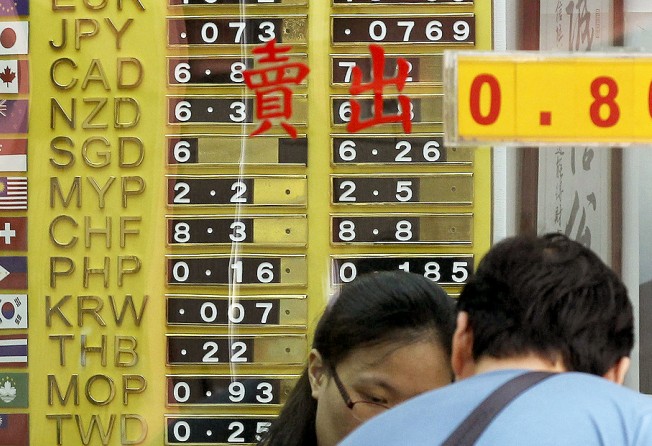Watchdog warns of money-changer scam that leaves customers short-changed
Staff verbally quote top exchange rates but sums handed over don't add up, warns Consumer Council after complaints double

A foreign-exchange scam has emerged in the city, with crooked money-changers verbally quoting one rate to customers before using a less favourable rate to calculate the actual sum paid over, the Consumer Council has warned.
The ploy appears to take advantage of the complicated sums involved that often leave customers having to take the exchange's figures on trust.
The number of complaints to the council about money changers doubled to 97 last year, from 49 in 2012. Most of the complaints concerned foreign exchanges in Yau Ma Tei, Tsim Sha Tsui and Mong Kok.
In one case last year, a man looking to sell US$3,800 was told at a shop that its exchange rate was US$1 for HK$7.75, the council said in its June issue of Choice magazine.
He was given HK$28,500 - and no receipt - but later realised he should have received HK$29,450. When he returned to the shop, the staff member insisted the rate was HK$7.50, not HK$7.75.
The money changer was prosecuted and fined for failure to issue a receipt; failure to keep a copy of the receipt for a year; and failure to display the conversion rate.
Professor Michael Hui King-man, chairman of the council's publicity and community relations committee, advised people to examine their receipts.
"Consumers should wait for a receipt to be issued and check to see there is no problem before paying the money," Hui said.
He reminded consumers that they had the right to cancel a transaction within three days if the money changer had violated the Money Changers Ordinance, such as in failing to issue receipts or to display the rates in the shop.
Council chief executive Gilly Wong Fung-han said she believed the rise in the number of complaints was due to the higher number of tourists.
Of the 29 reports filed in the first five months of this year, 19 of the complainants were visitors.
One mainland visitor asked at an outlet of a foreign-exchange chain for its rate to convert yuan to Hong Kong dollars. An employee replied "127", according to the man.
He handed over 8,000 yuan and was given HK$9,016. On closer inspection, however, he realised the rate stated on the receipt was 1.127, not 1.27.
The council stepped in to mediate and the money changer raised the rate to 1.2, giving the complainant HK$584 more.
Choice also published a poll on holiday packages' optional service charges. The council questioned 2,514 people in tour parties leaving Chek Lap Kok in February and found some did not know it was up to them to decide how much to pay, if at all.
If travel agencies imposed such a charge, they should state that the rates were of a "recommendatory nature", the Travel Industry Council said.